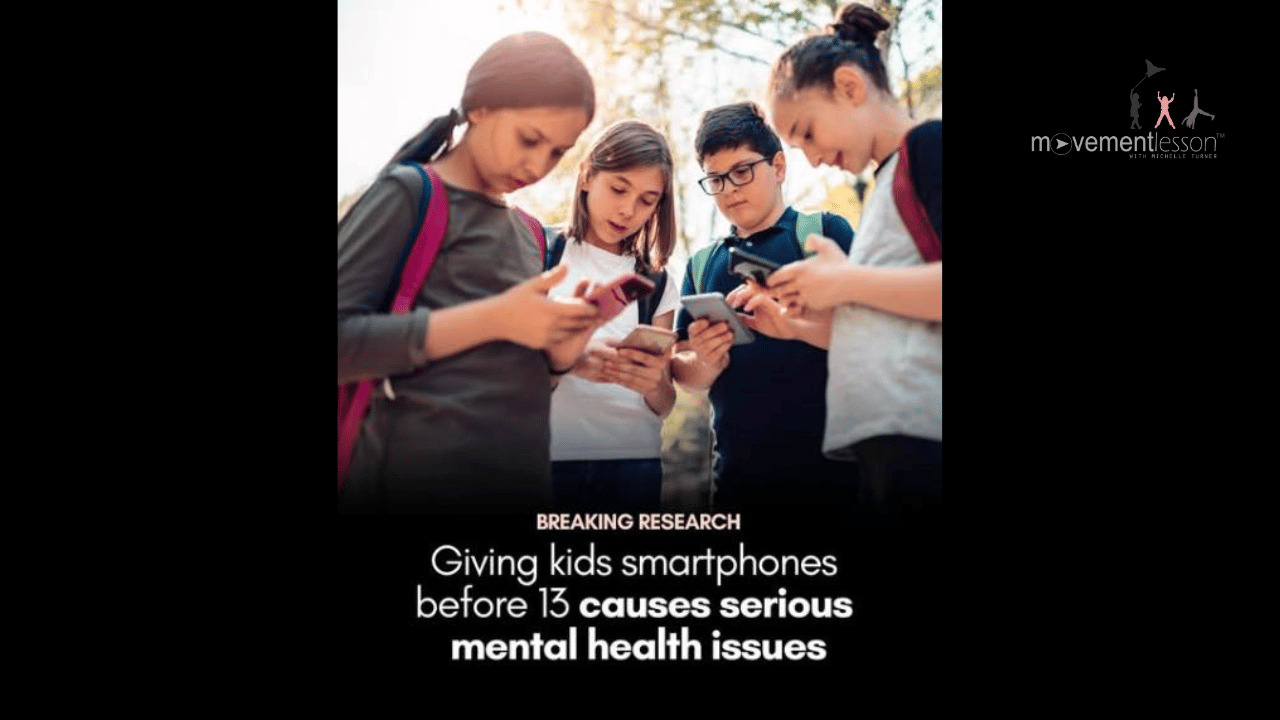Beyond Mental Health — What Smartphones Do to the Body’s Movement Intelligence
Nov 04, 2025

The research is right — early smartphone exposure affects emotional and cognitive development.
But what's missing is how it reshapes the way the body organizes movement, which in turn reshapes cognition itself.
Here's what most people overlook 
 Vision Without Convergence
Vision Without Convergence
Healthy vision depends on active and passive convergence — shifting focus smoothly from near to far.
Phones trap the eyes in a flat, 2D focal plane, stripping away the natural momentum and depth transitions that build visual intelligence.
When that happens, visual midlines collapse — peripheral vision narrows — and you see movement patterns identical to early Alzheimer's and spatial disorientation.

 Midline Lockdown
Midline Lockdown
When attention is fixed forward on a phone, rotational and crossing midlines shut down.
That means less coordination between the left/right hemispheres, poor reflex integration, and diminished postural adaptation.
You stop moving through gravity — and instead, you hang in it.
 Gate & Skeletal Buoyancy
Gate & Skeletal Buoyancy
Walking while using a phone shortens the stride and reduces buoyancy.
Your spine stops swaying side to side, which means your vertebrae stop massaging your organs—the internal system that keeps rhythm, balance, and calm.
This is why phone-heavy users often show shallow breathing and chronic stiffness: they've lost the body's natural oscillation.
 Unconditioned Reward Loops
Unconditioned Reward Loops
Phones train the brain to expect quick dopamine hits — vibration, flash, tap.
Without the slow, comparative feedback of movement and sensation, the nervous system becomes hypersensitive and unstable.
You end up with cognition without comparison — a brain that reacts, not organizes.

The takeaway?
Early smartphones don't just affect what children think — they change how their bodies and brains learn to move, balance, and self-regulate.
If we want resilient cognition, we need to restore rotational movement, convergence, and sensory comparison — the fundamental foundations of intelligence.
— Michelle Turner | Movement Lesson / Turner NextGen AI
"Cognition begins in movement. Without movement, there is no comparison — and without comparison, there is no learning."
Why?? A massive study just confirmed it — giving kids smartphones before 13 can have serious mental health consequences.
Sapien Labs, in the Journal of Human Development and Capabilities, surveyed over 100,000 young adults. Key finding: those given smartphones before age 13 faced sharply higher risks of depression, anxiety, aggression, and hallucinations in adulthood.
Lead researcher Dr. Tara Thiagarajan warns that preteen brains are ill-equipped to handle the relentless demands of social media.
Girls showed diminished self-esteem and emotional strength; boys displayed lower empathy and stability, compared to peers who delayed phone use.
The team calls for urgent action: treat smartphones for under-13s with the same restrictions as alcohol or tobacco.
As evidence mounts and experts raise alarms, this study fuels a worldwide push to safeguard children's minds by delaying that first phone.
[Tara C. Thiagarajan et al., "Protecting the Developing Mind in a Digital Age: A Global Policy Imperative", 2025, doi.org/10.1080/194528…]
Learn more about Movement Lesson HERE.
